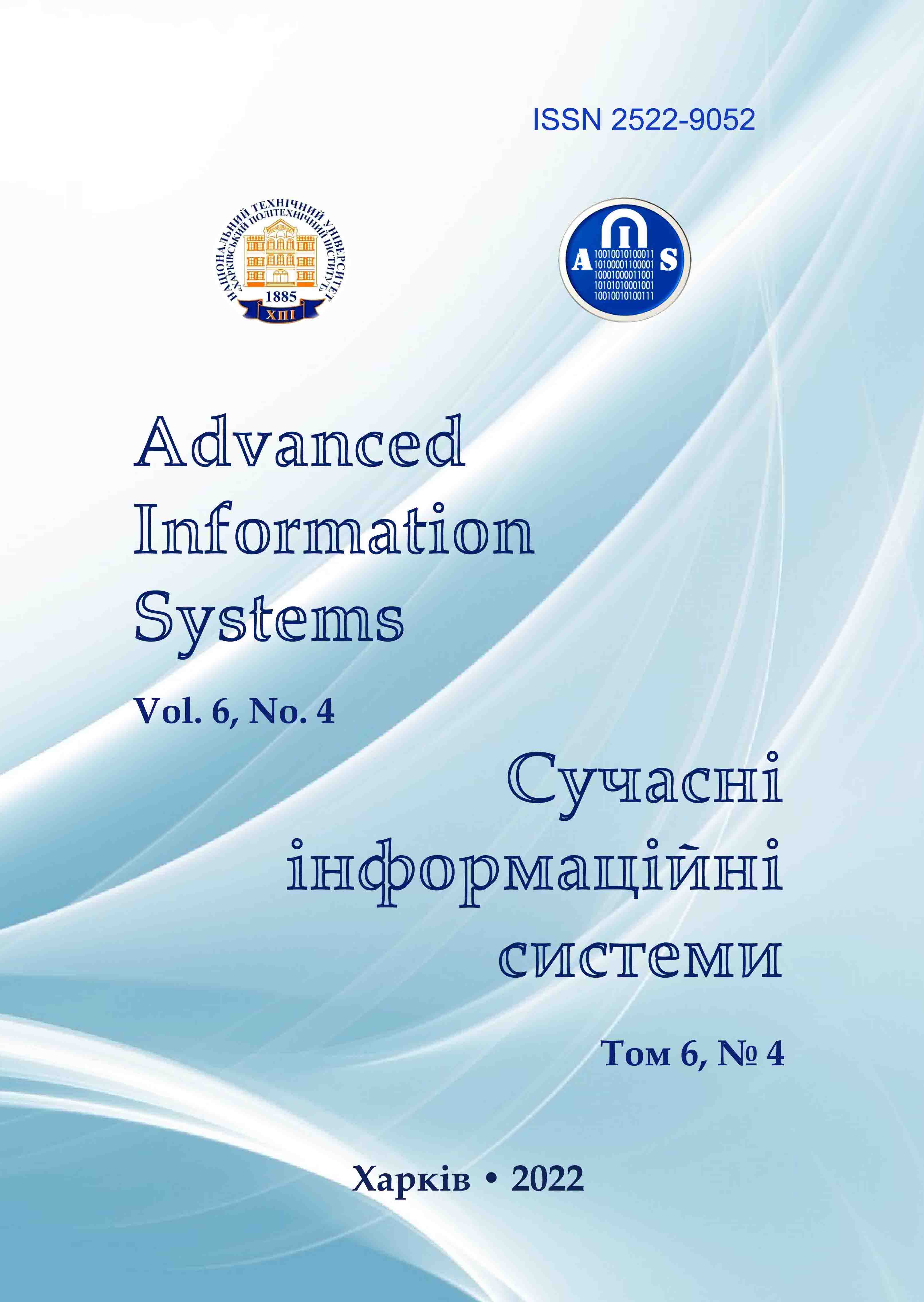ANALYSIS OF MARСOVIAN SYSTEMS WITH A GIVEN SET OF SELECTED STATES
Main Article Content
Abstract
Analysis of stationary Marcovian systems is traditionally performed using systems of linear Kolmogorov differential equations. Such systems make it possible to determine the probability of the analyzed system being in each of its possible states at an arbitrary time. This standard task becomes more complicated if the set of possible states of systems is heterogeneous and some special subset can be distinguished from it, in accordance with the specifics of the system functioning. Subject of the study is technology development for such systems analysis. In accordance with this, the purpose of the work is to find the distribution law of the random duration of such a system's stay on a set of possible states until it falls into a selected subset of these states. Method for solving the problem is proposed based on splitting the entire set of possible states of the system into two subsets. The first of them contains a selected subset of states, and the second contains all the other states of the system. Now a subset of states is allocated from the second subset, from which a direct transition to the states of the first subset is possible. Next, a system of differential equations describing the transitions between the formed subsets is formed. The solution of this system of equations gives the desired result – distribution of the random duration of the system's stay until the moment of the first hit in the selected subset of states. The method allows solving a large number of practical problems, for example, in the theory of complex systems reliability with many different failure states. In particular, finding the law of the uptime duration distribution, calculating the average duration of uptime.
Article Details
References
Kleinrock, L. (1976), Queueing Systems: Vol. II. Computer Applications, Wiley Interscience, New York, 576 p.
Kleinrock, L. (1975), Queueing Systems: Vol. I. Theory, Wiley Interscience, New York, 417 p.
Hinchin, A.Ya. Raboty po matematicheskoj teorii massovogo obsluzhivaniya [Works on the mathematical theory of queuing], Fizmatgiz, Moscow, 289 p. (in Russian).
Kendall, D.G. (1953), “Stochastic Processes Occurring in the Theory of Query and Their Analyses by the Method of Markov Chains”, Ann Math. Stat., Vol. 24, pp. 338–354.
Solnyshkina, N.V. (2015), Teoriya_sistem massovogo obsluzhivaniya [Queuing Systems Theory], VPO KNA GTU, 76 р., URL: https://knastu.ru/media/files/page_files/page_421/posobiya_2015/_Teoriya_sistem_massovogo_obsluzhivaniya.pdf, (in Russian).
Kartashevskij, V.G. (2013), Osnovy teorii massovogo obsluzhivaniya [Fundamentals of queuing theory], Gor. Liniya – Telekom, Moscow, 131 р., URL: https://studfile.net/preview/16385845/, (in Russian).
Belyj, E.K. (2014), Vvedenie v teoriyu massovogo obsluzhivaniya [Introduction to queuing theory]. Gor. Liniya – Telekom, Moscow, 188 р., URL:
Asmussen S. (2003), Applied Probability and Queues, Springer, Stochastic Modelling and Applied Probability, Vol. 51, New York, 458 p.
Chan, W. (2014), An Elementary Inroduction to Queuing System, Wored Scientific Publishing company, Singapure, 110 p., doi: https://doi.org/10.1142/9190
Raskin, L.G. & Pustovojtov, P.E. (2002), “Reshenie mnogonomenklaturnoj zadachi upravleniya zapasami po veroyatnostnomu kriteriyu [Solution of a multi-item problem of inventory management by a probabilistic criterion]”, Sistemnyj analiz, upravlenie, informacionnye tehnologi, No. 13, NTU «HPI», Kharkiv, pp.49-53.
